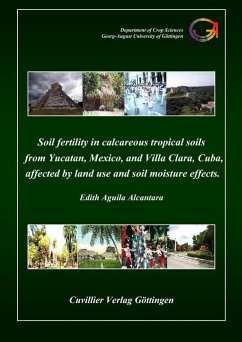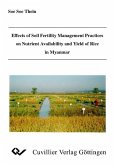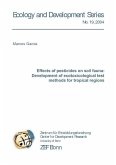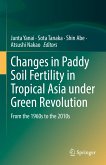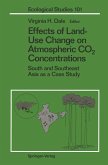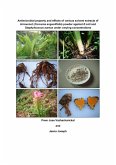Calcareous soils are common in the semiarid tropics, but little is known about the influence
of land use changes on their fertility. In these soils, the presence of free carbonates may cause some nutritional problems such as deficiencies in P and cation imbalances. Four tropical calcareous soils from Yucatan, Mexico, and Villa Clara, Cuba were assessed in this research. In Mexico, the selected soils were redish brown redzinas and black lithosols. In Cuba; they were brown calcareous (Orthic-Calcaric Cambisol) and humus-rich calcareous (Hyper-Calcaric Phaeozem) soils. Three main land uses were considered for each country. In the Yucatecan group were chose three main land uses: milpa, forest, and homegardens. At the Cuba sites: sugarcane monoculture, pasture and woodland (isolated patches of secondary vegetation) were the selected land uses. The aim of this study was characterize the main indicators of soil fertility for these calcareous soils. With this purpose, the amounts of SOC and total N were determined as basic indicators of soil quality. Also, the exchangeable Ca, Mg and K were measured, in order to identify imbalance problems among them. P distribution based on its bioavailability was assessed considering that P is the most limiting nutrient in semiarid ecosystems. As well, the effect of soil moisture on nutrient availability was another aim of the research. To this end, an incubation experiment using ion exchange membranes was done. In this thesis, the different topics above mentioned were grouped in three experimental chapters (Chapter 2 to Chapter 4) and the major findings were highlighted in the conclusion chapter (Chapter 5).
Dieser Download kann aus rechtlichen Gründen nur mit Rechnungsadresse in A, B, BG, CY, CZ, D, DK, EW, E, FIN, F, GR, HR, H, IRL, I, LT, L, LR, M, NL, PL, P, R, S, SLO, SK ausgeliefert werden.

